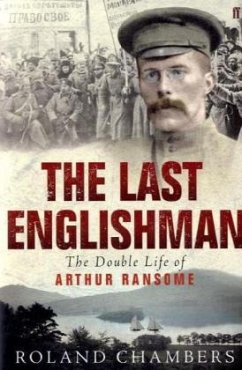Arthur Ransome is best remembered as the author of the series of books that began with 'Swallows and Amazons' and sold millions of copies around the world. But before he became the jolly Lakeland storyteller, offering idyllic images of brave children messing about in boats, Ransome had spent a decade in Russia and lived a very different life as a spokesman for authoritarianism and violence.
He went there in 1913 as a struggling young freelance writer and made friends with leading Russian liberals, and wrote a fine book of tales based on Russian folk legends. But as the country sank into chaos and war, Ransome was caught up in the whirlwind of revolution. Always impressionable and eager to please, he gained the confidence of the Bolshevik leadership and became, for three crucial years, their main defender and propagandist in the West. His reports in the Guardian were uncritical and disingenuous. MI6 considered him an agent of a foreign power; British officials argued that he should not be allowed to return to Britain.
Yet at the same time, while Ransome was so intimate with the Communist leadership that he could get exclusive interviews with Lenin who he portrayed as an avuncular, folksy, straight-talking politician he was also offering to help elements of the British intelligence services with information about what was going on in Russia.
He went there in 1913 as a struggling young freelance writer and made friends with leading Russian liberals, and wrote a fine book of tales based on Russian folk legends. But as the country sank into chaos and war, Ransome was caught up in the whirlwind of revolution. Always impressionable and eager to please, he gained the confidence of the Bolshevik leadership and became, for three crucial years, their main defender and propagandist in the West. His reports in the Guardian were uncritical and disingenuous. MI6 considered him an agent of a foreign power; British officials argued that he should not be allowed to return to Britain.
Yet at the same time, while Ransome was so intimate with the Communist leadership that he could get exclusive interviews with Lenin who he portrayed as an avuncular, folksy, straight-talking politician he was also offering to help elements of the British intelligence services with information about what was going on in Russia.

